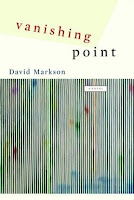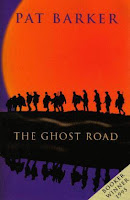 Cowgirl Stampede
Cowgirl StampedeThough I fly in from California where words crest
high as the Big Sur Coast, I want to write an epic vast
as Texas, horns grand as the long-horned cattle
that cowgirls drove across the West to Ft. Worth
I want to grapple with those poems that stampede me
all my life, heave them to the ground, bellow to our sisters
that our lives are worth the long trek across the plains
to Abilene. I want to hogtie those poems.
while the cowhands cheer and wave their Stetsons.
jump to their feet in a boot-scooting swing. I'll forge
shit-kicking poems that will fill up a ball room, make my
people dance all night, belt buckle to belt buckle.
I had the pleasure of hearing Glenna at a recent poetry event and fell in love with her poetry. This book is an excellent collection of recent poems. Her poetry is clean and pure as it describes both simple and complex situations. A light-heartedness mixed with deep compassion makes the poems touch the reader in a very personal way. Glenna has travelled widely to both exotic and seemingly ordinary places. With the poet's mind, she is able to extract the ordinary in the exotic and the exotic in the ordinary. These poems don't bemoan what's missing in life, but rather extol the wonders of passing through life. The poems are like pictures of what someone may have missed--but not Glenna.















 It's evening now, and everybody's scribbling away, telling people the news, or as much of the news as we're allowed to tell them. I look up and down the dormitory and there's hardly a sound except for pages being turned, and here and there a pen scratching. It's like this every evening. And not just letters either. Diaries. Poems. At least two would-be poets in this hut alone.
It's evening now, and everybody's scribbling away, telling people the news, or as much of the news as we're allowed to tell them. I look up and down the dormitory and there's hardly a sound except for pages being turned, and here and there a pen scratching. It's like this every evening. And not just letters either. Diaries. Poems. At least two would-be poets in this hut alone.









 "I'm tellin' you, people aren't dumb or lazy. They just gotta see the possibilities--understand that they can do it. Then get outta their way. C'mon, I'll hitch up a horse and show you around."
"I'm tellin' you, people aren't dumb or lazy. They just gotta see the possibilities--understand that they can do it. Then get outta their way. C'mon, I'll hitch up a horse and show you around."


 I am making this statement as an act of wilful defiance of military authority, because I believe the war is being deliberately prolonged by those who have the power to end it.
I am making this statement as an act of wilful defiance of military authority, because I believe the war is being deliberately prolonged by those who have the power to end it. 
















